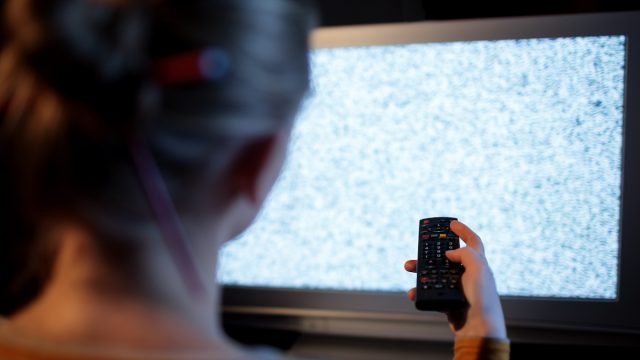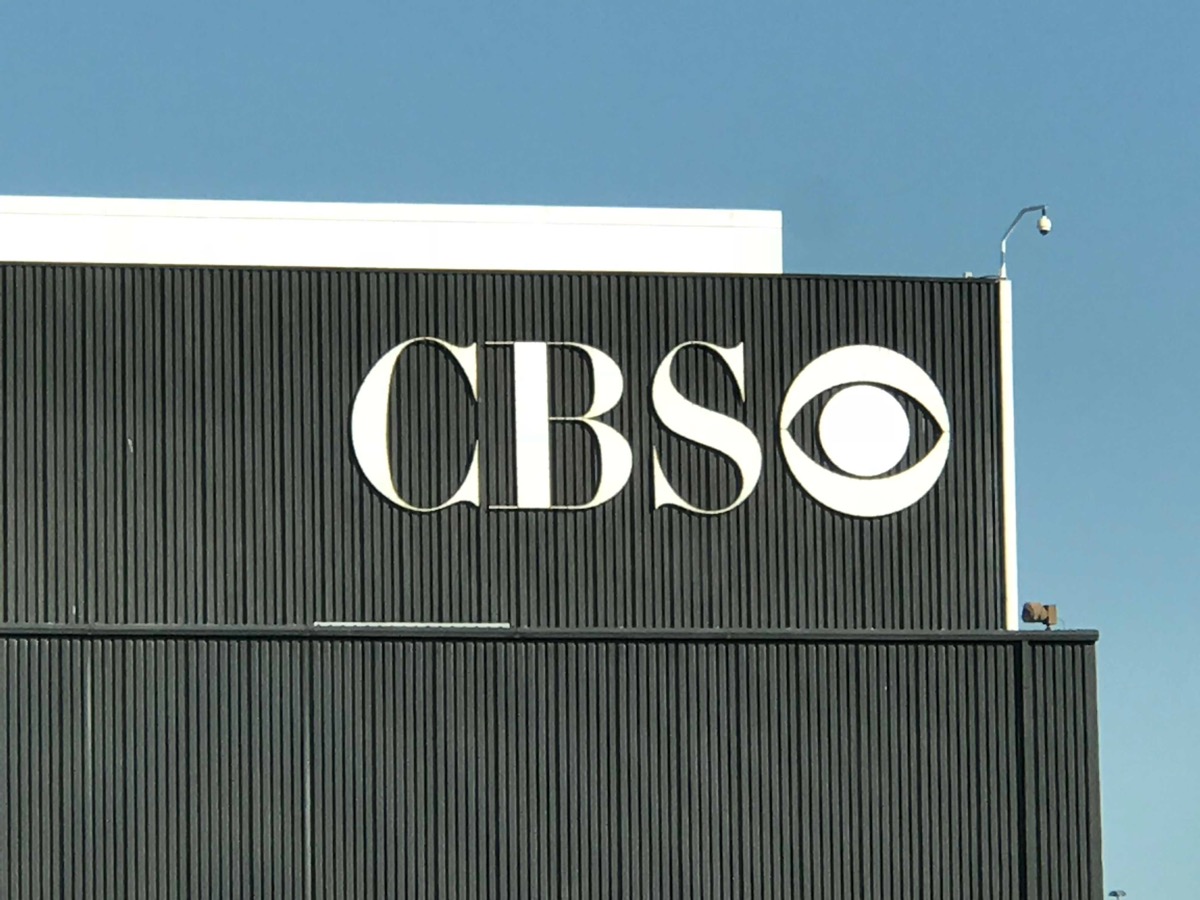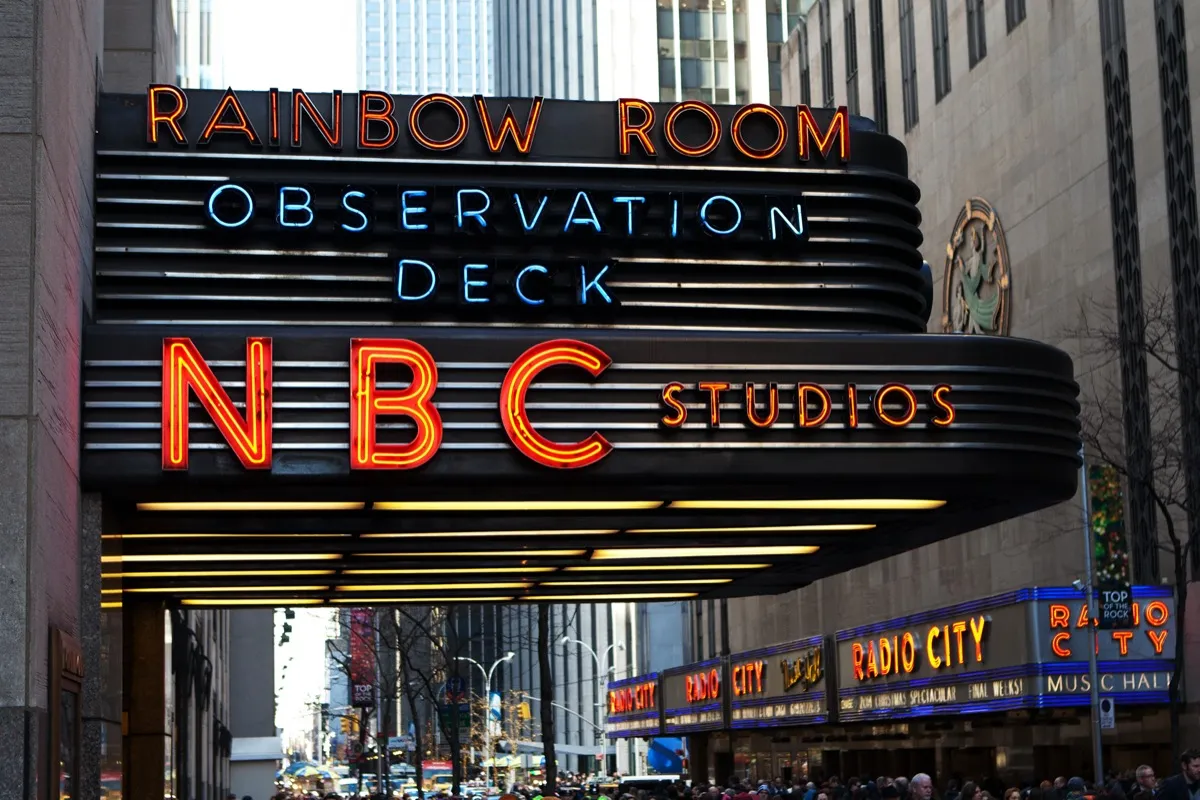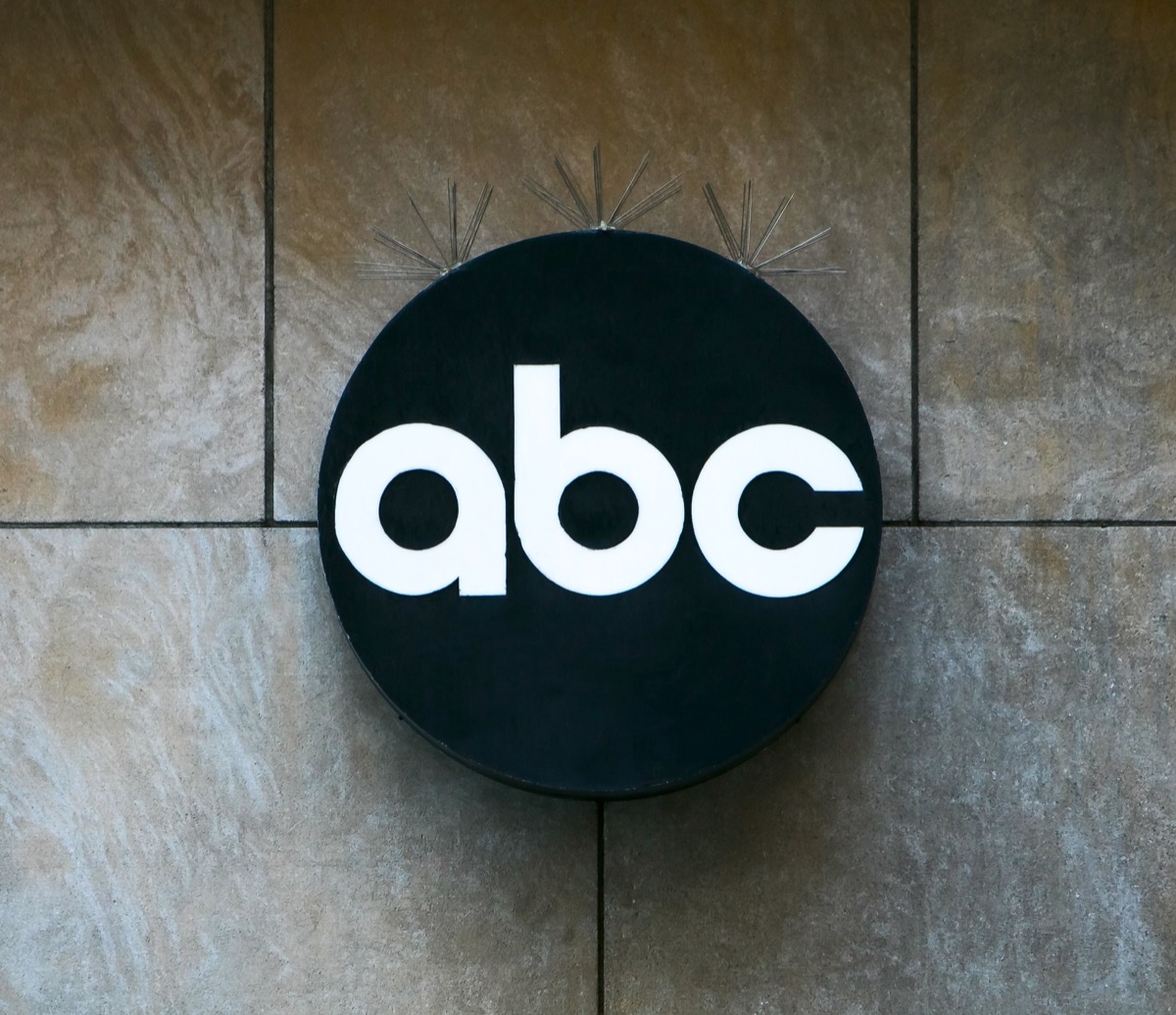If You Have This TV Provider, Prepare For a Blackout This Week
Subscribers with this television provider may lose access to more than 160 channels come Dec. 2.

Whether you're curling up with your favorite show after a long work day or diving into Christmas movies to get into the holiday spirit, it's probably safe to say that you haven't spent quite so much quality time with your TV as you have this year. And that's why you should be prepared that the screen you're glued to day after day may soon go black, depending on your TV provider. Dish Network customers may experience a blackout this week of more than 160 channels due to a dispute between the TV provider and Nexstar Media Group. Read on to find out if this potential blackout affects you, and for more recent news about your technology, If You Have This on Your Phone, Delete It Now, Experts Warn.
Dish Network and Nexstar Media Group are currently in a dispute over a new agreement to replace their former 2016 deal that expires on Dec. 2. If no agreement is reached in the next 24 hours, Dish customers could lose access to 164 channels. The companies have yet to strike a new deal and instead continue to blame one other for the lack of a new agreement, according to USA Today.
"Nexstar Media Group, the largest local broadcast station owner in the nation, is threatening to black out Dish customers' access to 164 local channels in 120 markets across 42 states and the District of Columbia," Dish Network said in a statement on Nov. 26. "The broadcast giant is trying to use its market power to demand unreasonable rate increases while intentionally using millions of Americans as pawns in their negotiations. This action by Nexstar would result in consumers being blacked out from the highest number of local broadcast stations in the nation's TV history."
The TV provider continued by saying that Nexstar is trying to "strong-arm" companies like Dish to pay exorbitant amounts of money, which would "force unprecedented increases onto customers." Brian Neylon, the group president of Dish TV, says Nextar is asking for more than $1 billion in fees for them to provide the television channels it owns.
Nexstar, however, says Dish is to blame for millions of viewers possibly losing "local news, traffic, weather, sports, and entertainment programming provided by Nexstar's 164 television stations."
"Since July, Nexstar has been negotiating tirelessly and in good faith in an attempt to reach a mutually agreeable multi-year contract with Dish, offering Dish the same fair market rates it offered to other large distribution partners with whom it completed successful negotiations in 2019 and 2020," Nexstar said in a statement released on Nov. 27. "Despite generating nearly $11 billion in revenue during the first nine-months of this year and completing a billion-plus dollar acquisition of a wireless company, Dish has proposed rates that go significantly backwards."
In its statement, Nextstar also said that Dish's comments are "less than credible" and that the TV provider has a "long history of holding its subscribers hostage during negotiations with content providers."
It's true that Dish has faced its fair share of blackouts over the years due to contract disputes. In late 2014, Dish dropped Fox networks after failing to reach an agreement with the company before eventually coming to an agreement in early 2015. And in what has been regarded as the largest single TV blackout ever, Dish dropped 129 stations operated by Sinclair Broadcast Group on Aug. 25, 2015 after the companies failed to reach an agreement. A day later, however, they made a deal and the channels were restored.
In its Nov. 27 statement, Nexstar said the company was hopeful to reach a resolution with Dish on that day. However, as of Nov. 30, no agreement has been announced. So Dish Network subscribers may be losing 164 channels in a matter of days. To find out some of the channels at risk, read on, and for more TV drama with a happier ending, check out This "Fresh Prince" Star and Will Smith Just Reconciled After 27 Years.
Read the original article on Best Life.
1
CBS

As of Mar. 24, Nexstar owns and operates CBS affiliates in 41 markets across the United States. This includes stations in Portland, Oregon; Raleigh, North Carolina; Indianapolis, Indiana; and Las Vegas, Nevada. And for more up-to-date information, sign up for our daily newsletter.
2
Fox

Nexstar is also the largest independent operator of Fox affiliate stations, which will be a loss to many Dish Network subscribers if a blackout occurs. Stations in cities such as Denver, Colorado; Cleveland, Ohio; Sacramento, California; and Charlotte, North Carolina could be affected.
3
NBC

In November of 2019, Nexstar and NBC entered a new four-year agreement to allow Nexstar to own 21 NBC affiliate stations. Some of the Dish subscribers that may be affected by this include those in Tampa, Florida; Columbus, Ohio; Austin, Texas; and Grand Rapids, Michigan. And for more NBC-related news, discover who was The Worst Guest "Today" Has Ever Had, Host Says.
4
ABC

Nexstar has a long-term agreement with ABC through Dec. 2022 that allows it to own and operate 24 ABC affiliate stations. This includes local ABC stations in cities like Nashville, Tennessee; Salt Lake City, Utah; Hartford, Connecticut; and Richmond, Virginia. And for more drama with this network, check out ABC Sitcom Star Quits, Calling Show a "Toxic Environment."





















